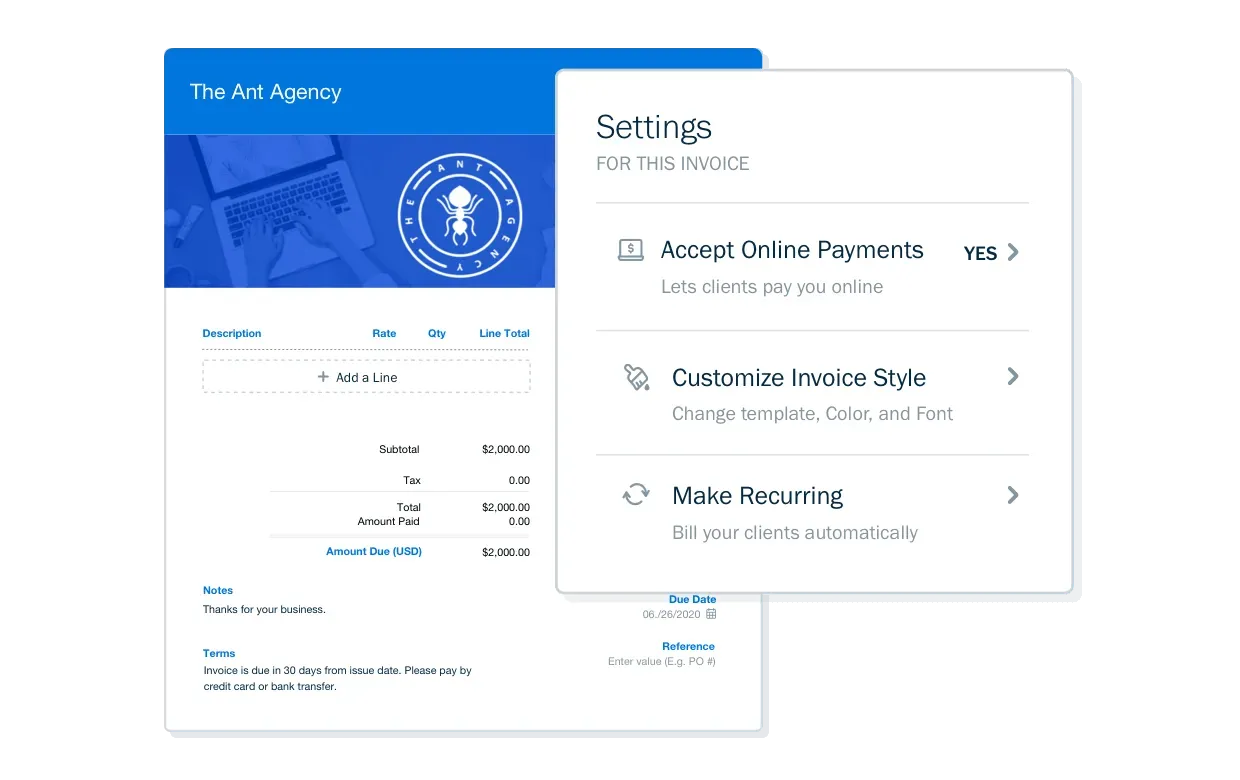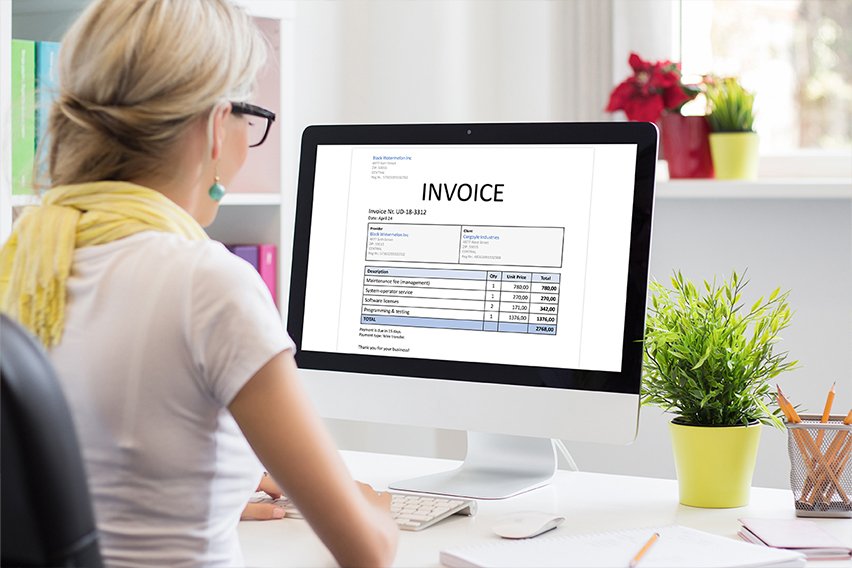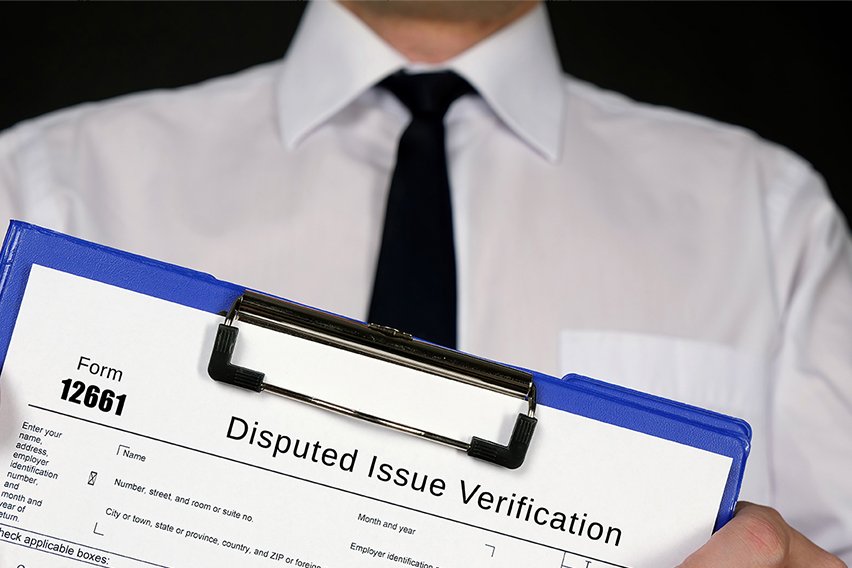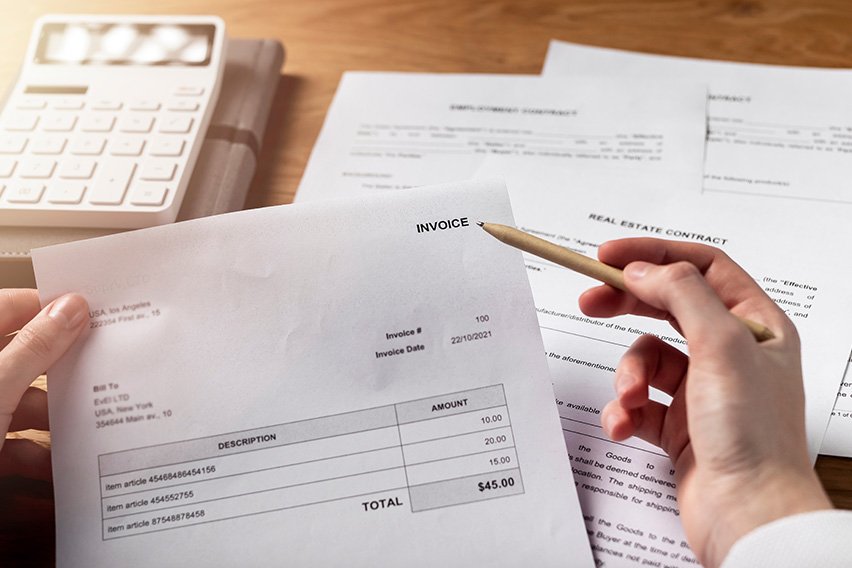Invoice Factoring: Definition & How It Works

Staying on top of outstanding invoices and accounting for hidden fees is a normal part of accounts receivable. But what if your customer fails to pay on time? Does this affect your invoice processing ability? Small businesses want to do everything they can to have positive cash flow instead of poor cash flow. And this can be hard to achieve if there are outstanding invoices.
This is where invoice factoring comes into play. But is there invoice factoring cost? Can you factor invoices to a third party factoring company? These are all great questions to ask, especially if you have slow paying customers.
Keep reading to learn all about invoice factoring, including how to collect payment, factoring costs, pros and cons, and more!
Table of Contents
- What Is Invoice Factoring?
- What Is a Factoring Company?
- Why Is Factoring Important?
- How Does Invoice Factoring Work?
- Advantages of Invoice Factoring
- Disadvantages of Invoice Factoring
- Invoice Factoring Example
- Key Takeaways
- Frequently Asked Questions

What Is Invoice Factoring?
By selling a select number of unpaid invoices to a factor for less than what is due, a business can use invoice factoring to get the extra cash it needs. In exchange, the business doesn’t have to wait for the 30, 60, or 90-day term mentioned on the invoice. Instead, it gets up to 90% of the invoice amount within a few business days.
The factor typically takes on the duty of collecting the invoice in factoring scenarios. A portion of the total invoice amount is retained by the factoring company as revenue until the whole amount of the invoice has been paid. The remaining balance is then paid to the seller.
It has no effect on your credit like regular bank financing because it’s a sale rather than a loan. To avoid any misunderstanding, the terms “factoring” and “accounts receivable financing” are frequently used interchangeably. Long before their clients pay their bills, it enables small firms to access the cash worth of their invoices.
Invoices don’t have to be a challenge to stay on top of or organize. FreshBooks is an intuitive invoicing software that makes tracking invoices as easy as possible. For example, if you have invoices that are overdue or still outstanding, FreshBooks will automatically identify them. Ultimately, this helps with factoring all your invoices.

In some instances, invoice factoring can also get referred to as debt factoring or accounts receivable factoring.
What Is a Factoring Company?
A finance partner known as a factoring company buys your invoices in return for cash. They’re often referred to as just a “factor”. Once you have been given the go-ahead to deal with the factor, you can sell your unpaid receivables to increase operating capital and get rid of the wait caused by extended payment terms.
The factoring business authenticates your invoices, advances up to 90% of the invoice face value, and then pursues payment from your clients directly for those invoices. This happens directly through a notice of assignment. The remaining invoice value is released to you after the factor receives payment from the final consumer. This occurs under the agreed-upon terms, less a nominal factoring fee of anywhere from one to five percent.
Why Is Factoring Important?
In particular, for businesses with limited resources and slow-paying clients, factoring eases cash flow worries during a quiet period. Almost every owner of a small business has experienced the anxiety of worrying about whether they will be able to pay their employees’ wages or some other important business obligation.
Lack of funds may also prevent a company from taking advantage of opportunities, such as partnering with a significant new store in time for the holidays or going global. Companies that are tight for cash are forced to make hasty decisions that may limit or cut off long-term potential.
How Does Invoice Factoring Work?
Factoring is a relatively straightforward kind of finance. You can decide if the procedure makes sense for your organization once you have a better understanding of it. Let’s take a closer look at how it all works.
First, it’s important to recognize who is involved throughout the factoring process. Here, we have the:
- Seller, which is your business
- Debtor, which is the customer of your business
- Factor, which is the factoring company
Now that you know who is involved in the factoring process, you can begin to understand the steps that go into it. Typically, there are five distinct steps of invoice factoring.
- After rendering a service or making a delivery, the Seller invoices the Debtor.
- The Seller sends the Factoring Company that invoice for funding such as on Day 1
- The factoring company deposits 80–90% of the invoice amount into the seller’s business bank account as an advance to them
- The Factoring Company receives the money by mail from the Debtor, who deposits it in a lockbox under the Seller’s name
- A minor factoring charge is deducted before the remaining 10–20% of the invoice value is remitted to the seller
Advantages of Invoice Factoring
Depending on your individual circumstance, there can be several advantages to invoice factoring. Some of the biggest advantages include:
- Improving cash flow and making it more predictable. Instead of having to wait for the money to come in, you may get the majority of your invoices paid quicker by employing invoice factoring. It improves the accuracy of business planning and forecasting. It also enables you to seize opportunities that might otherwise be out of reach financially.
- An improved opportunity for business survival. Your business has a better chance of surviving if it has better cash flow. If you utilize invoice factoring effectively, it can prevent your company from failing because bad cash flow causes many firms to fail.
- Easier process and cheaper compared to a bank loan. Invoice factoring is a fantastic option for short-term financial needs because it is typically more affordable and simpler to get than a bank loan. Additionally, it relieves you of the burden of managing your debt. That might be significant savings, depending on the size of your consumer base.
- A reduction in business overhead. Your company’s overheads might be reduced by using invoice factoring services. Although there are costs involved with invoice factoring, they might be less than what it would spend to hire specialized credit control personnel. Since hunting down unpaid invoices is a stressful job, invoice factoring might help boost the morale of those who work in your accounts department.
Disadvantages of Invoice Factoring
Even though there can be some substantial benefits to invoice factoring, there are also some disadvantages that are worth exploring. Here are some of the biggest disadvantages of invoice factoring:
- It might not be suitable unless you have lots of customers. Businesses with just a few key clients should avoid using invoice factoring. Companies that factor like to spread their risk as thinly as possible. They make an effort to prevent sending several invoices to a small number of clients.
- You need to be fully committed to the process. Even though it’s possible to factor a few invoices, most factoring companies want everything you have. They might also try to lock you into a protracted contract that lasts for two years or longer. From their point of view, this is essential. But it also means that you can’t use invoice factoring intermittently. It’s a significant choice that you need to make.
- If your customers are risk-takers, it can cost more. The risk of late or non-payment of debt is as properly assessed as possible by factoring organizations. This implies that they will carefully evaluate your customers. Their costs will be high if you or your clients are viewed as high risk due to their judgment of your creditworthiness.
- If it doesn’t end up working you can incur extra costs. In the event that your clients prove to be worse payers than anticipated, there may be more expenses you have to pay. Unless you pay extra for non-recourse factoring, you can be required to reimburse the money the factoring company has already given you in the event that a customer defaults on payment.
Invoice Factoring Example
Let’s say that you have a business that sells 2,000 units each month. You also only have two employees who work for you. After going viral, another company approaches you and wants to purchase 20,000 units from you.
This is going to increase your monthly revenue significantly based on a per-unit wholesale price. You were able to fulfill the majority of the cost but noticed you might not be able to with only 45 days until the total payment was due.
In this instance, you decide to approach a factoring company for assistance. After deciding you didn’t pose a payment risk, the company buys the total invoice amount from you at a 5% fee. The next day, you receive the majority of the money from the factoring company into your business account. This allows you to fulfill the amount of the invoice that needs to get paid.
Key Takeaways
Cash flow problems are an undeniable barrier to corporate success. A solution to the issue is invoice factoring. A business can quickly get the majority of the value of its unpaid bills by selling them to a factoring company. The money is then available to complete new orders, cover operating costs, and seize business expansion prospects.
When the factoring company receives payment from the customer, the business receives the remaining amount of the invoice’s value. Factoring is a desirable financing option for many small firms that are unable to deal with banks.

FAQs on Invoice Factoring
Is invoice factoring worth it?
If you have enough customers, then yes, invoice factoring is worth it. It’s a great option for small business owners who need to obtain extra financing while customer payments are still outstanding.
What is the difference between invoice financing and factoring?
Invoice financing is a type of relationship that occurs between the lender and the business. This is different compared to the lender and the client, which occurs in invoice factoring.
What are the risks of factoring?
Sometimes factoring can increase risk if your customers aren’t reliable. As well, it can be a long process that you need to be fully committed to.
How do you qualify for invoice factoring?
Requirements can range to qualify for invoice factoring. Some include if you sell to other businesses, if you have creditworthy customers, and if you have over $5,000 in sales each month.
RELATED ARTICLES

 How to Write a Rent Receipt?
How to Write a Rent Receipt? Online Invoicing Portal: A Small Business Guide
Online Invoicing Portal: A Small Business Guide What is a Disputed Invoice? – How to Resolve Them
What is a Disputed Invoice? – How to Resolve Them 7 Best Invoice Management Software for 2025
7 Best Invoice Management Software for 2025 What Is a Credit Invoice?
What Is a Credit Invoice? What Is an Invoice: Purpose, Types, Elements & Example
What Is an Invoice: Purpose, Types, Elements & Example